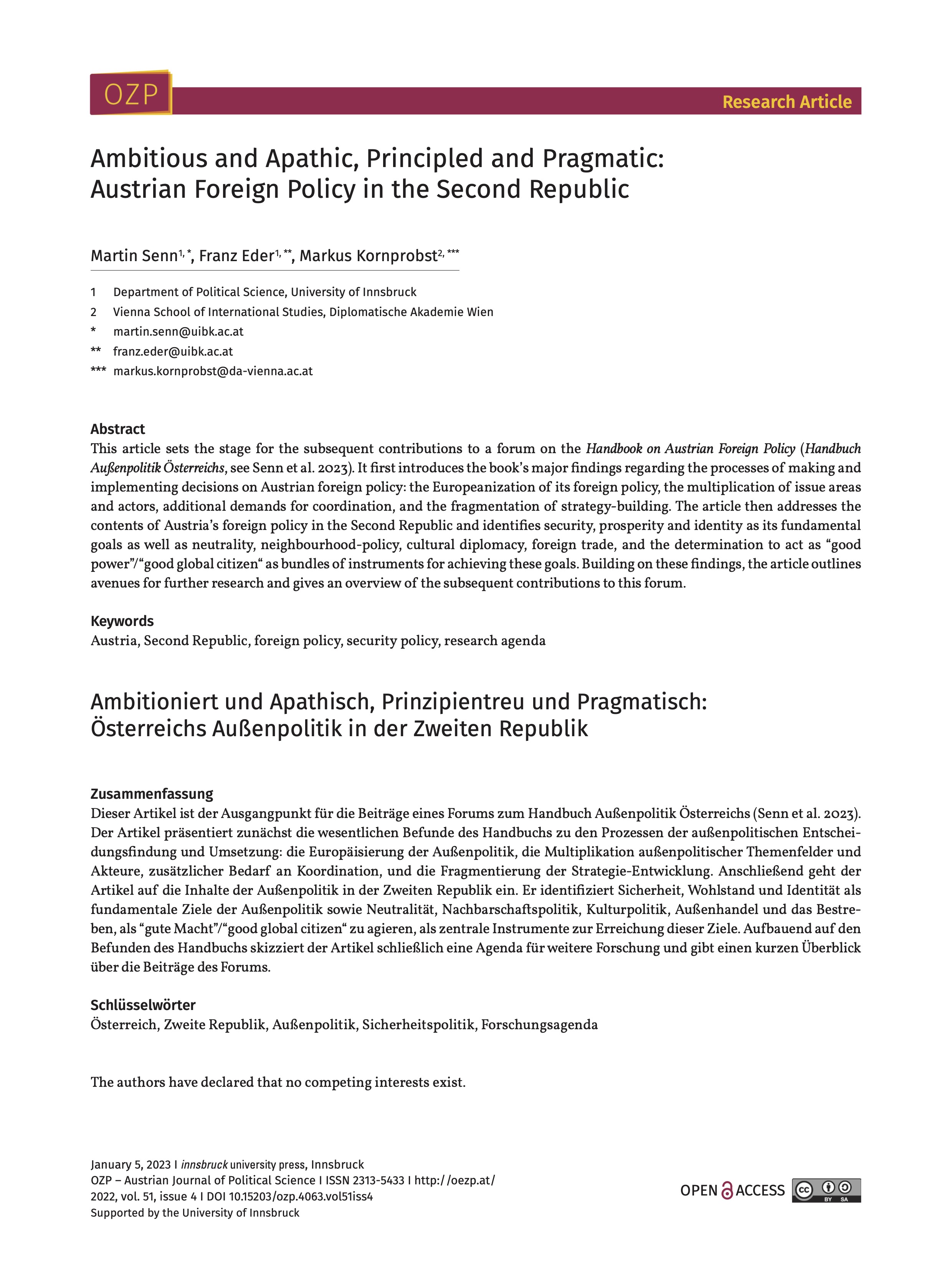This article sets the stage for the subsequent contributions to a forum on the Handbook on Austrian Foreign Policy (Handbuch Außenpolitik Österreichs). It first introduces the book’s major findings regarding the processes of making and implementing decisions on Austrian foreign policy: the Europeanization of its foreign policy, the multiplication of issue areas and actors, additional demands for coordination, and the fragmentation of strategy-building. The article then addresses the contents of Austria’s foreign policy in the Second Republic and identifies security, prosperity and identity as its fundamental goals as well as neutrality, neighbourhood-policy, cultural diplomacy, foreign trade, and the determination to act as “good power”/“good global citizen” as bundles of instruments for achieving these goals. Building on these findings, the article outlines avenues for further research and gives an overview of the subsequent contributions to this forum.
Read this article here: 10.15203/ozp.4063.vol51iss4
